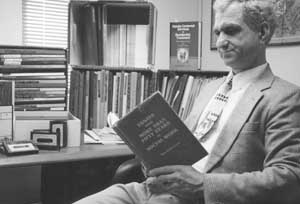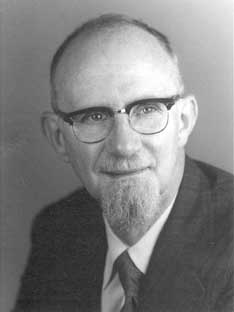
Social Work Division secures Alan Keith- Lucas collection Roberts Wesleyan College has received, as a gift, the collected works of the late Alan Keith-Lucas, longtime professor of social work at the University of North Carolina and a pioneer in the integration of Christian faith and social work practice. Lawrence Ressler, director of the Master of Social Work program at Roberts, accepted the collection from Keith's daughter, Susan Carson, this spring. "It's not a huge collection," Ressler conceded. "There are several hundred articles and several dozen books. But Keith is a giant among Christian social work educators. He wrote more about the integration of faith and social work than anyone from 1958 to his death in 1993. This will be a terrific resource for our students." Keith's books include The Church and Social Welfare (1962), Giving and Taking Help (1972), The Client's Religion and Your Own Beliefs in the Helping Process (1983), So You Want to Be a Social Worker: A Primer for the Christian Student (1985), and Biblical Insights Into the Helping Process (1991). Keith was born in 1910 in Cambridge, England. After earning a master's degree in English literature from Cambridge University, Keith worked as a principal at a private elementary school. A visit to the United States in 1937 became a permanent move. He earned a master's degree in social work at Western Reserve University (now Case Western Reserve University) in Cleveland, Ohio, and there met his wife Jill, (who predeceased him). After working in the welfare system for 11 years, he taught in the School of Social Work at the University of North Carolina, Chapel Hill; he remained there until his retirement in 1975. During that time, he also received his Ph.D. in political science from Duke University. Keith's 20 years of retirement were among the most productive of his life. He wrote more than 200 articles and 30 books/chapters (nearly 50 percent of his writing) during this time. He was a sought-after speaker, a regular contributor to the North American Association of Christians in Social Work (NACSW), an active consultant to children's homes, and a devoted father and grandfather. Ressler became acquainted personally with Keith in the mid-1980s when he spoke at a workshop about the integration of faith and social work. "I was inspired by the ease with which he integrated his faith and helping," Ressler said. "He articulated what I sensed - that it is possible to be both a committed Christian and an effective social worker." Keith did not become a Christian until he was 41, Ressler explained. He was struck by the parallel between the model of helping he had developed, which involved reality, empathy, and support, and the Holy Trinity. "He had discovered a fundamental similarity between Christian theology and helping. Christianity suddenly made sense to him. He found that a Christian explanation of the nature of the human condition was far more accurate than the alternatives ... he saw the helping process as a reflection of a divine process." Ressler committed a six-month sabbatical in 1992 to better understanding Keith's work. "It was both humbling and inspiring to work in his library with walls lined with his writings and many awards," Ressler said. "There is no doubt he was a brilliant thinker. But even more importantly, he was a man with a profoundly loving heart. He loved children, especially those who had been most wounded by life. His approach to helping centered on the power of love, which, he was convinced, far outweighed the power of force." As Ressler came to know Keith the scholar, he also grew to appreciate him as a friend. Keith invited Ressler and his family to visit him at his vacation home in the Blue Ridge Mountains, times Ressler said he cherished - "although the truth is he was more interested in seeing my children and playing mahjong, taking them to the village to get jelly beans, or taking them to mine for 'precious gems', than talking with me about theology or social work theory," Ressler recalled. Keith's collection belongs at Roberts Wesleyan, Ressler said, because the integration Keith sought after is "what we're all about." Roberts Wesleyan offers one of only two master of social work degrees available from evangelical Christian institutions in the United States. |

 Above:
Above: